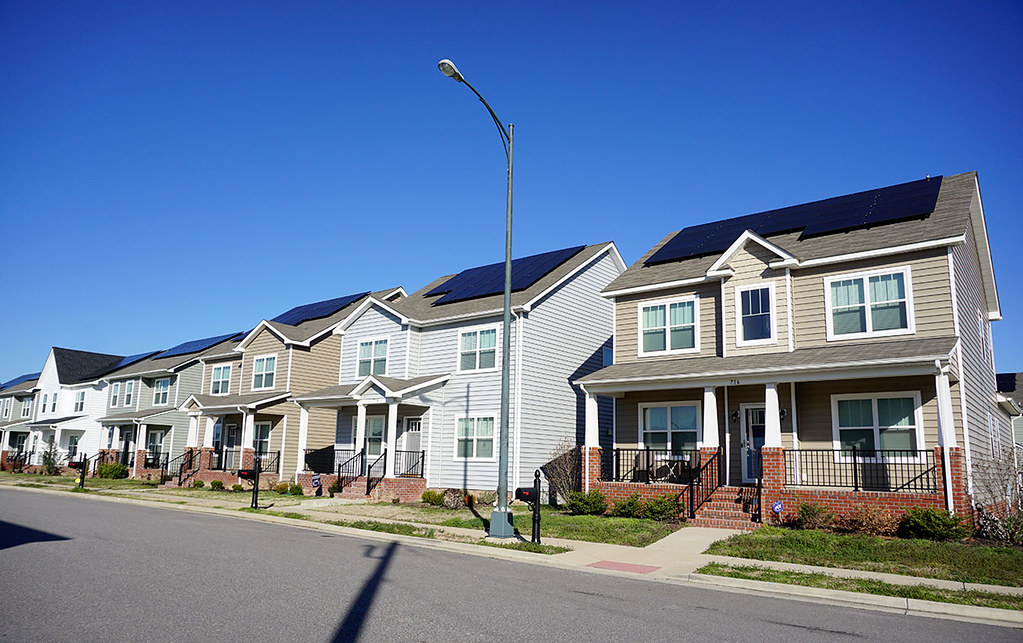Letter: Build Rooftop Solar First

Photo: Flckr.com. (CC BY-NC 2.0)
There needs to be a full court press – all parties at the table – to address the crisis of planetary health and its relation to energy use. State and Federal legislators, voters, local pols, tax payers, energy consumers – all need to be involved. Rooftops First, the notion that we should prioritize placing solar panels on all available rooftops before we develop solar farms, removes the “right of center” ploy that represents the interests of environmentalists (concerned with erosion, deforestation, loss of habitat, bio-deversity, water quality) in opposition to the interests of clean energy advocates (ban fossil fuels). We saw this polarization in the recent struggle over solar development in Amherst where those insisting that solar must be developed everywhere and at any cost emerged as apparent opponents of those arguing for protection of habitat and water, and forest.
Solar farms (why do you think they are called farms?) are large and typically owned by corporations. Just as solar gets close to where everyone can afford to own it, sadly it begins to emerge as an element dividing our communities. When solar is placed on homes, businesses, schools, and government buildings, the energy goes to these same entities. It stays within the community, just as coops and smaller mom and pop stores feed the locals. Corporations are extractive and don’t prioritize community needs.
Join us in promoting Rooftops First – supporting solar policy that puts the panels out of sight, above the ground, and on existing buildings whenever possible. Solar farms should be our phase II – employed only when necessary and only when rooftop options have been largely exhausted. And then, they should be owned by municipalities and nonprofits to be right-sized and welcomed by local residents. We don’t have that yet in the Pioneer Valley. But we should.
Chad Fuller
Chad Fuller is a founding member of Zero Waste Amherst and a former organizational development/community development consultant

Hey Chad, I absolutely support putting solar on rooftops and anywhere in the built environment but the reality is that there is simply not enough viable capacity to meet the necessary scale of renewable energy production. Solar on the ground is necessary right now.